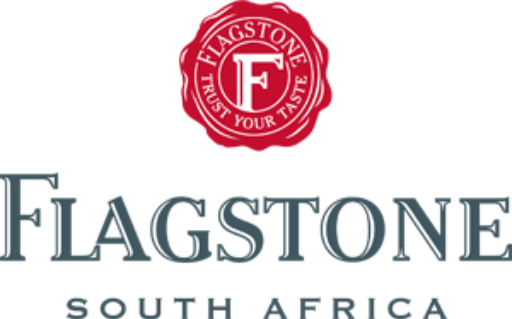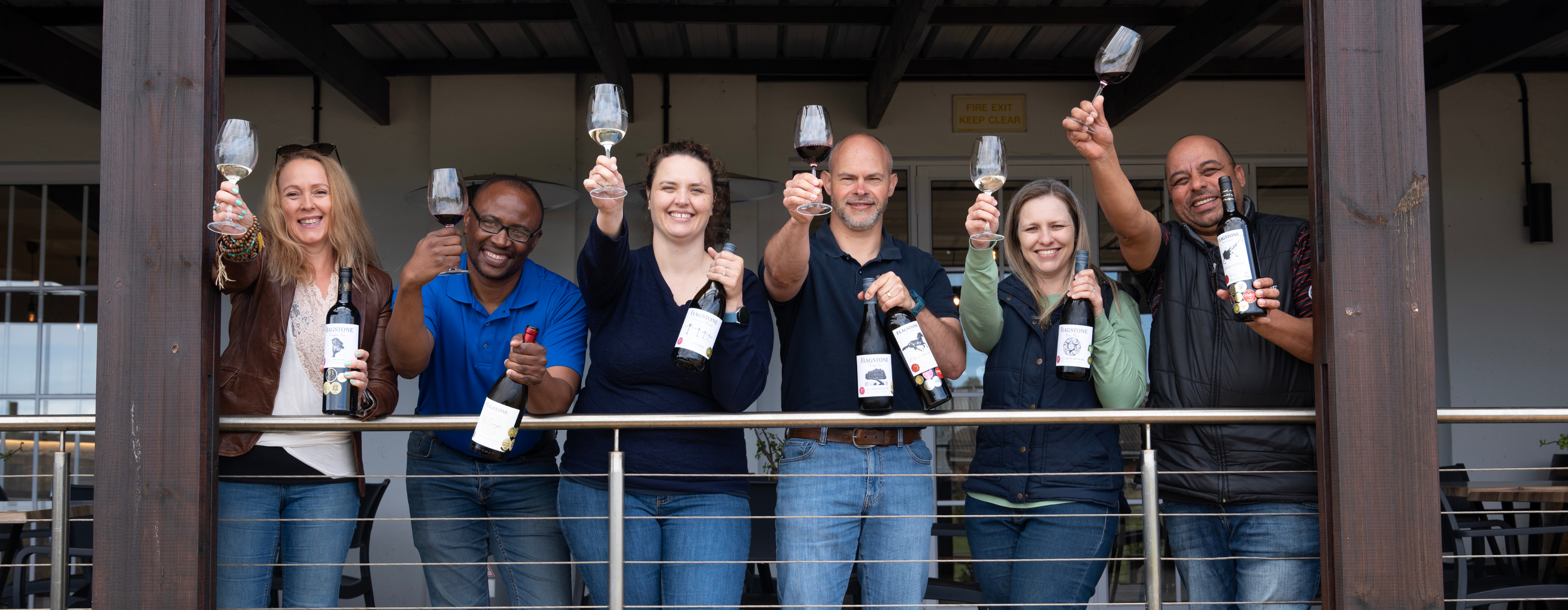LEARN MORE ABOUT FLAGSTONE WINES
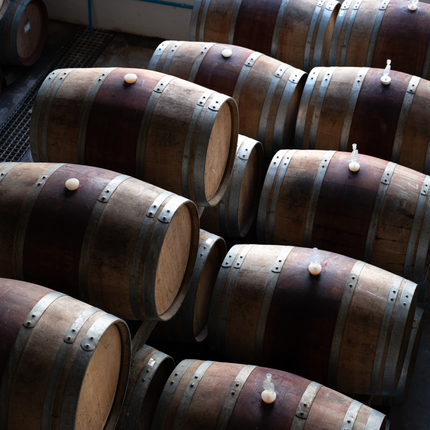
OUR HISTORY
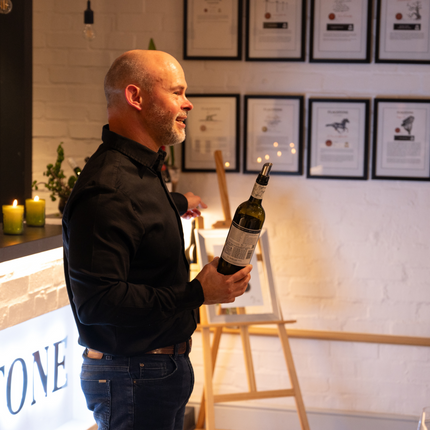
OUR PEOPLE

OUR BRANDS
OUR HISTORY
Our History
The chosen site was in Somerset West, on a vast 11,600-hectare estate, now bordered by the N2 highway, the R44, and the Atlantic Ocean. This factory, known as the De Beers Dynamite Factory, became a crucial part of the region’s industrial landscape. In 1924, the factory merged with the Nobel Group, named after Alfred Nobel, the inventor of dynamite, and the newly formed company was called African Explosives & Industries. The word “chemical” was later added in 1944, forming the name AECI, which remains today. Although dynamite production at the Somerset West site ceased in 1986, the location retained its historical significance as a former hub of explosive manufacturing.
In 2002, the old dynamite factory was given a fresh purpose when it was transformed into the home of Flagstone Wines. This unique conversion brought new life to the historic site, blending its industrial heritage with the craft of winemaking. Today, the former dynamite factory stands as a symbol of reinvention, housing Flagstone’s winemaking operations and offering wine lovers a distinctive experience rooted in history.
FLAGSTONE WINES
Our Handcrafted Wines
Driven by Winemaking
The Flagstone Philosophy
Nature and the Human Imagination
The Perfect Marriage
Inspiration exists, but it has to find you working - Picasso.
Our core supplying vineyards under management stretch over 200km from the cool Walker Bay district within the Cape South Coastregion in the south to the Darling district in the Cape West Coast Region in the west. There are numerous carefully selected vineyards in between these regions that has been trialed and selected over more than 15 years of winemaking.
OUR PEOPLE
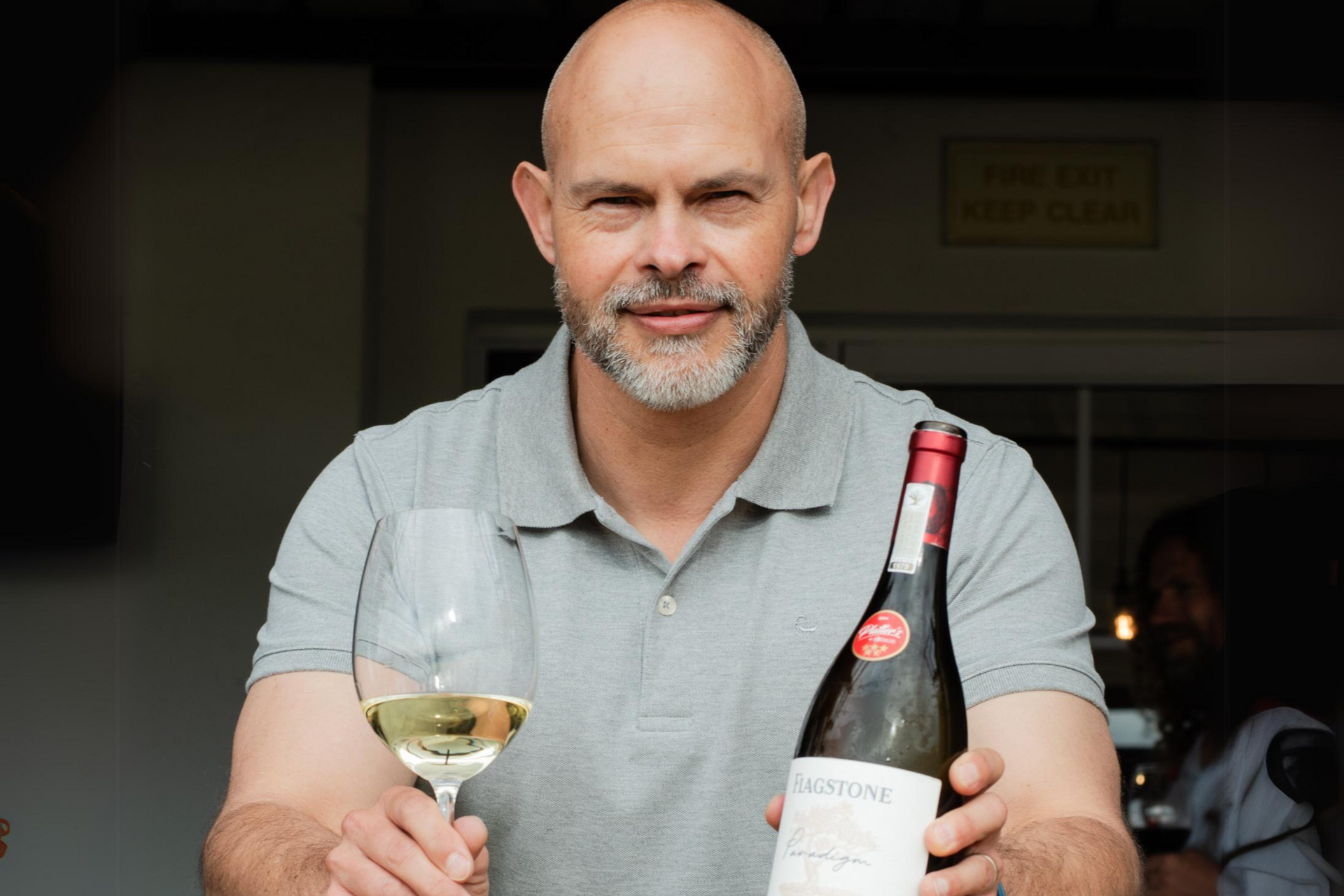
GERHARD SWART
Meet Our Winemaker
Flagstone’s Head Winemaker, Gerhard Swart, believes in constant innovation: “You always have to think about how to stand out, whether through unique labels, varieties, or blending terroirs.”
Raised in Strand and from an Overberg farming family, Gerhard earned his winemaking diploma in 1999 and trained under Bruce Jack and Chris Keet before leading Flagstone. His philosophy blends dedication, precision, and attention to detail—skills he attributes to his father.
Gerhard’s expertise has earned him the General Smuts Trophy twice, nine Top 10 Pinotage, five Top 12 Shiraz, three Top 10 Sauvignon Blanc and three Top 10 Chenin Blanc Awards as well as being named Top Achiever in the class for ten entries or less at the annual Veritas Awards.
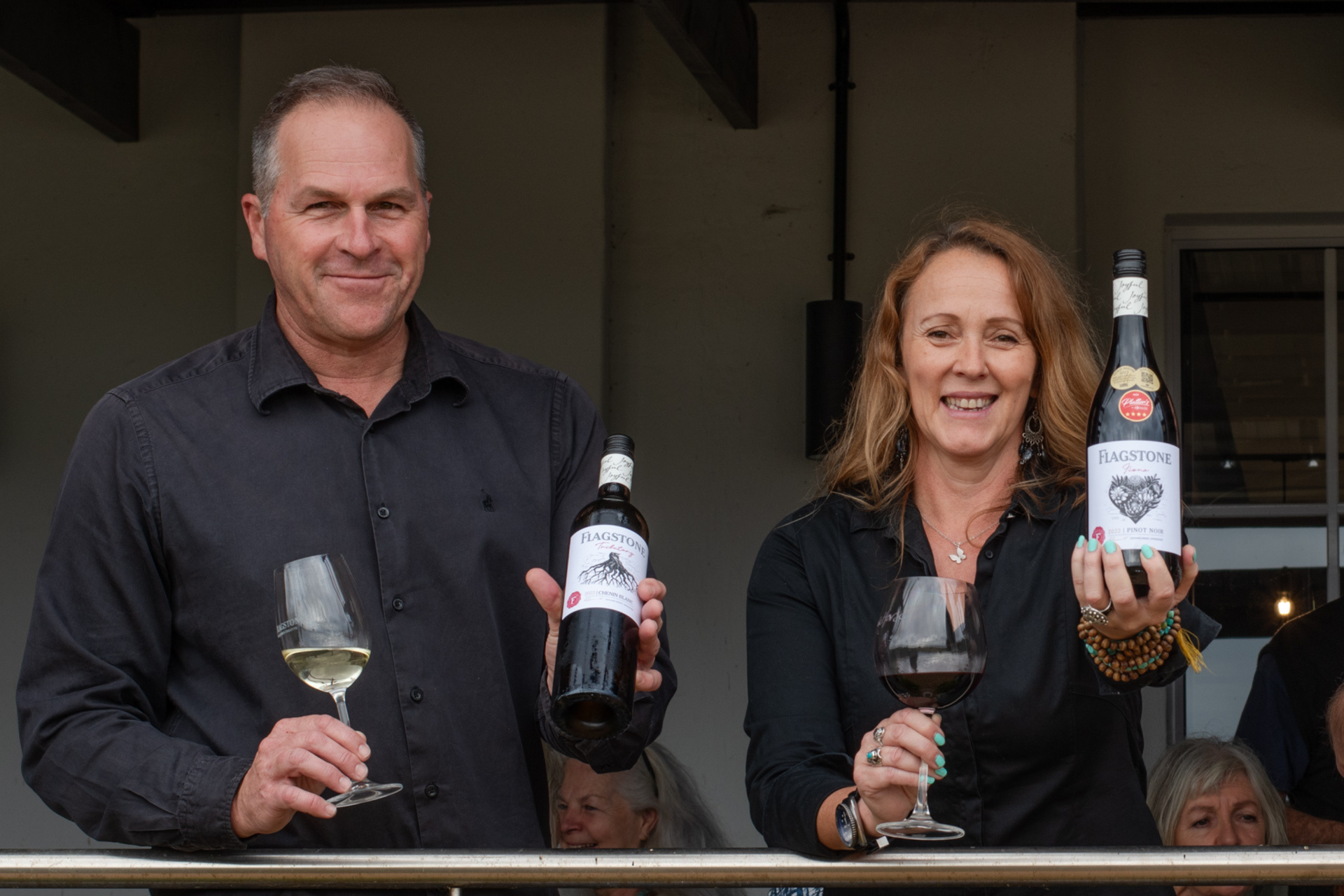
Meet The Team
Cellar Door
Our Cellar Door is managed by Ilze Fouche, who brings her passion for wine and the industry to every client interaction. You’ll also see her representing Flagstone at winery events and wine tastings across the Western Cape, sharing her extensive knowledge and enthusiasm for the brand.
The team at Flagstone’s Cellar Door is dedicated to creating a welcoming and enriching experience for all visitors. With their combined passion for wine and deep knowledge of the brand, they ensure every guest leaves with a memorable connection to Flagstone and its unique story.
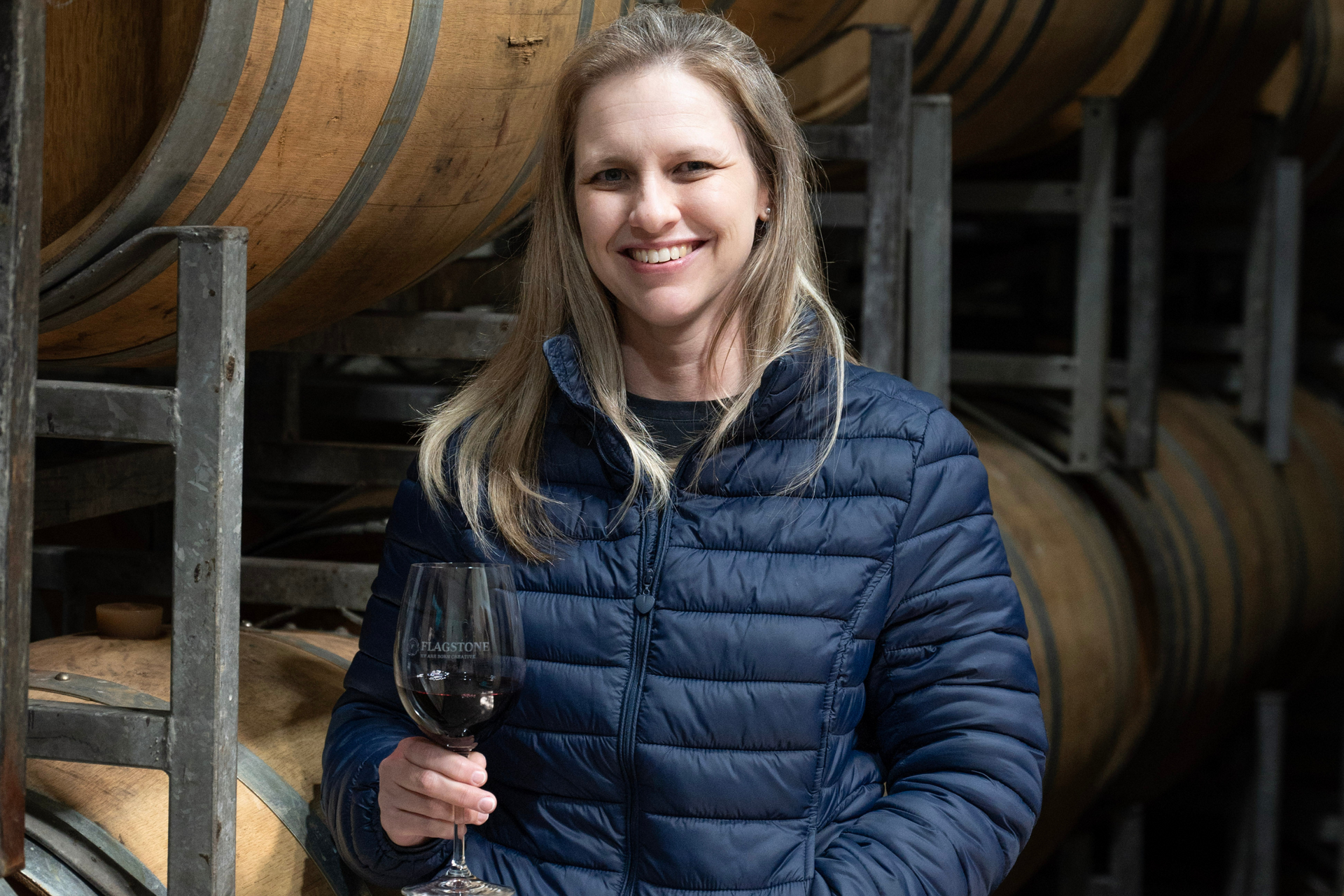
Winery Manager
Mia Boonzaier
Mia Boonzaier is responsible for running 3 different stock systems to control movement of Flagstone’s bulk wine and ensuring that Quality Management Systems are run successfully to achieve Integrated Production of Wine (IPW), South African Wine Industry Information and Systems (SAWIS) and Food Safety certification.
She also assists the Head Winemaker with the overall operation of the winery on a daily basis.
FLAGSTONE WINES
Seven Core Vineyards
As a company, we are totally committed to our world-leading “Integrated Production of Wine (IPW)” environmental sustainability scheme as well as being a member of the “Wine and Agricultural Ethical Trade Association (WIETA)” which actively promotes ethical trade in the wine industry value chain.
OUR BRANDS
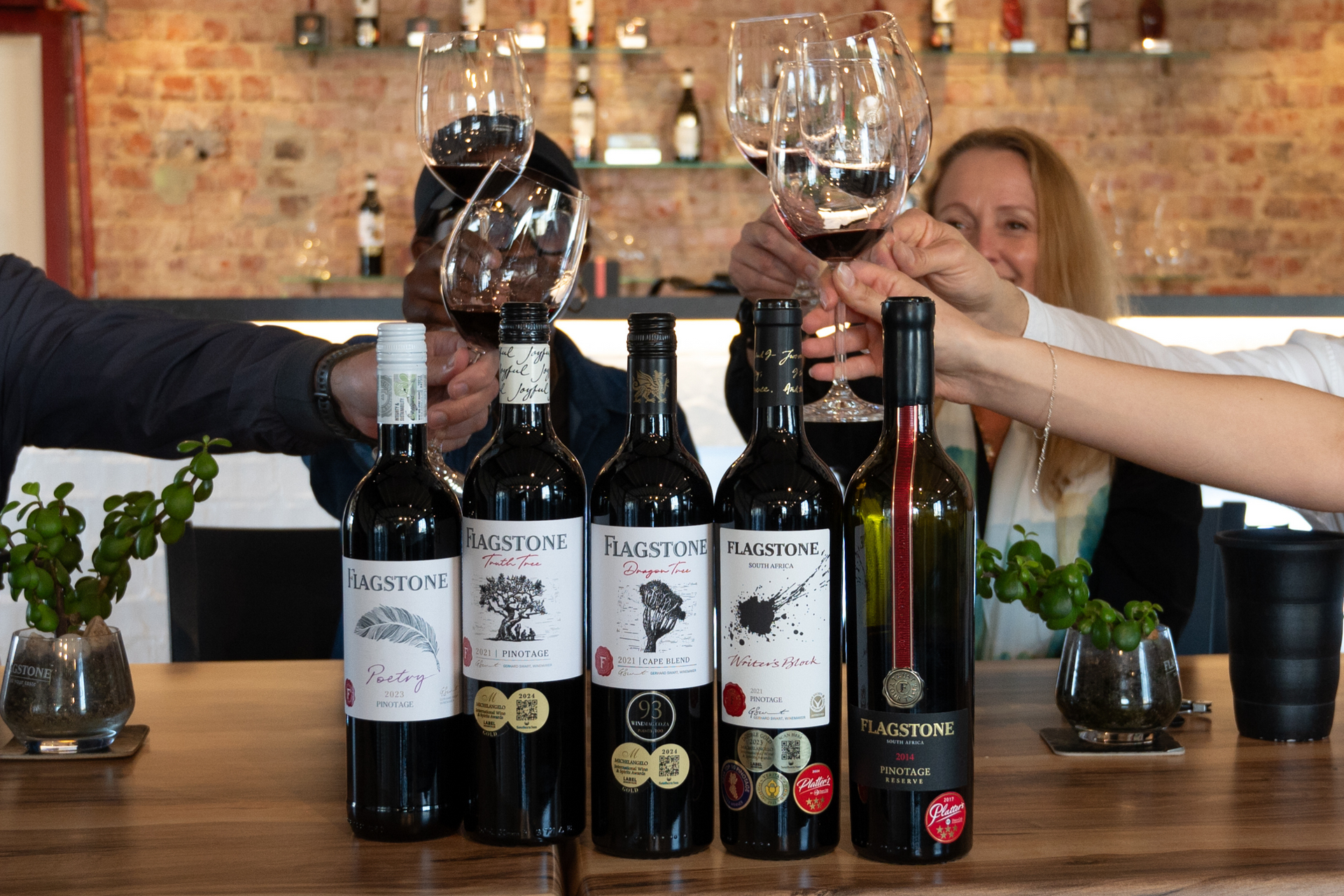
OUR FLAGSHIP
FLAGSTONE WINES
Every bottle of Flagstone wine is the result of a patient, passionate journey, with no shortcuts taken. Our dedication to quality is meticulous, guiding us step by step to create distinctive, award-winning wines that are savoured by many.
Beyond the rich flavours and soft tannins, Flagstone’s x-factor lies in how we care for the land, the people, and the creative process behind every wine. Our wines are vibrant expressions of fun and joy—a reflection of the passion that drives everything we do.
Take time to discover our wines – Trust Your Taste.

DA LUCA PROSECCO
Da Luca is proud to be Italian. Like the passion and boldness that is exuded from this beautiful country, our Prosecco echoes the effortless style and joie de vivre attitude the Italian’s are so fondly known for. The rich landscapes, the passionate people, the smell of citrus and homemade sauce and an overall ambiance that perfectly demonstrates a lust for life – this is the heart and soul of Da Luca.
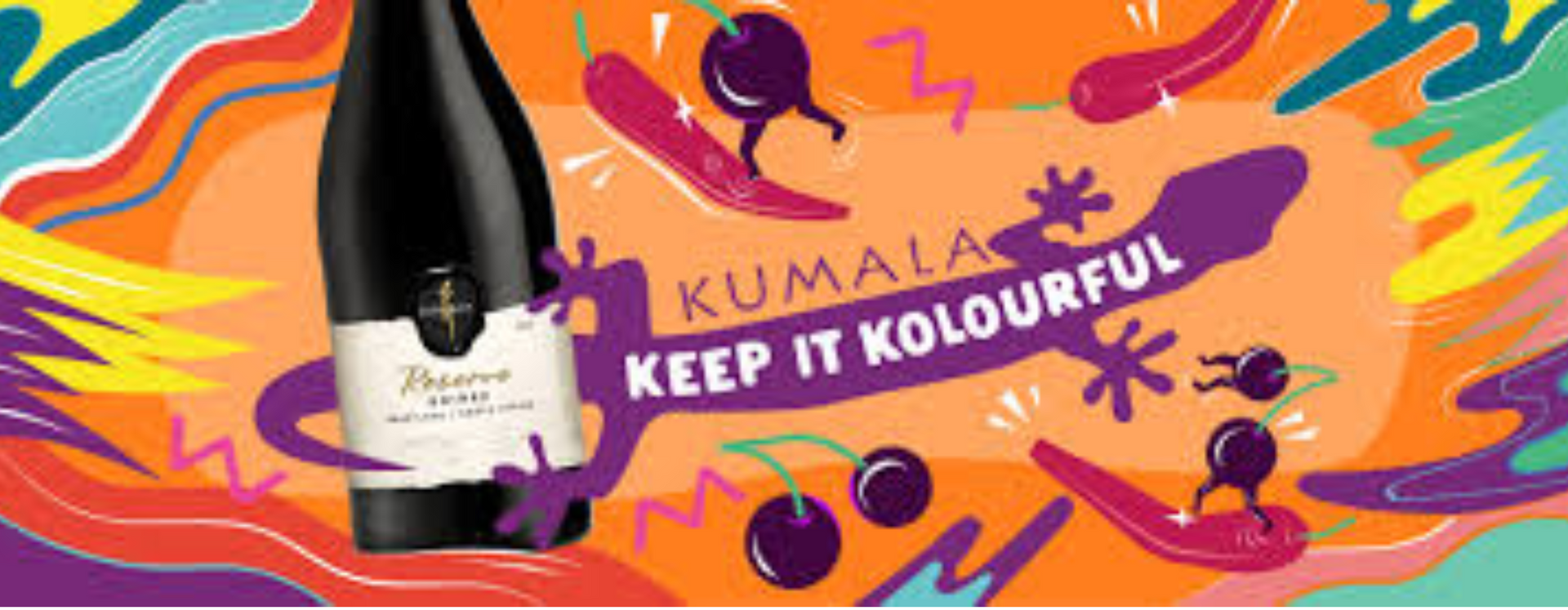
KUMALA WINES
At Kumala, we believe in taking the time to ensure our wines reach their full potential. Our growers and winemakers are fully dedicated to every step of the process, ensuring our grapes are perfectly ripened.
In a fast-paced world, we find joy in the art of slow, attentive winemaking. It’s a satisfaction you’ll feel when you take a moment to enjoy a glass of Kumala—whether it’s our mellow reds, crisp whites, or fruity rosés.
Nurtured in the serene surroundings of Table Mountain, our wines embody the passion we have for this land. So, take the time to savour Kumala and make time for yourself.
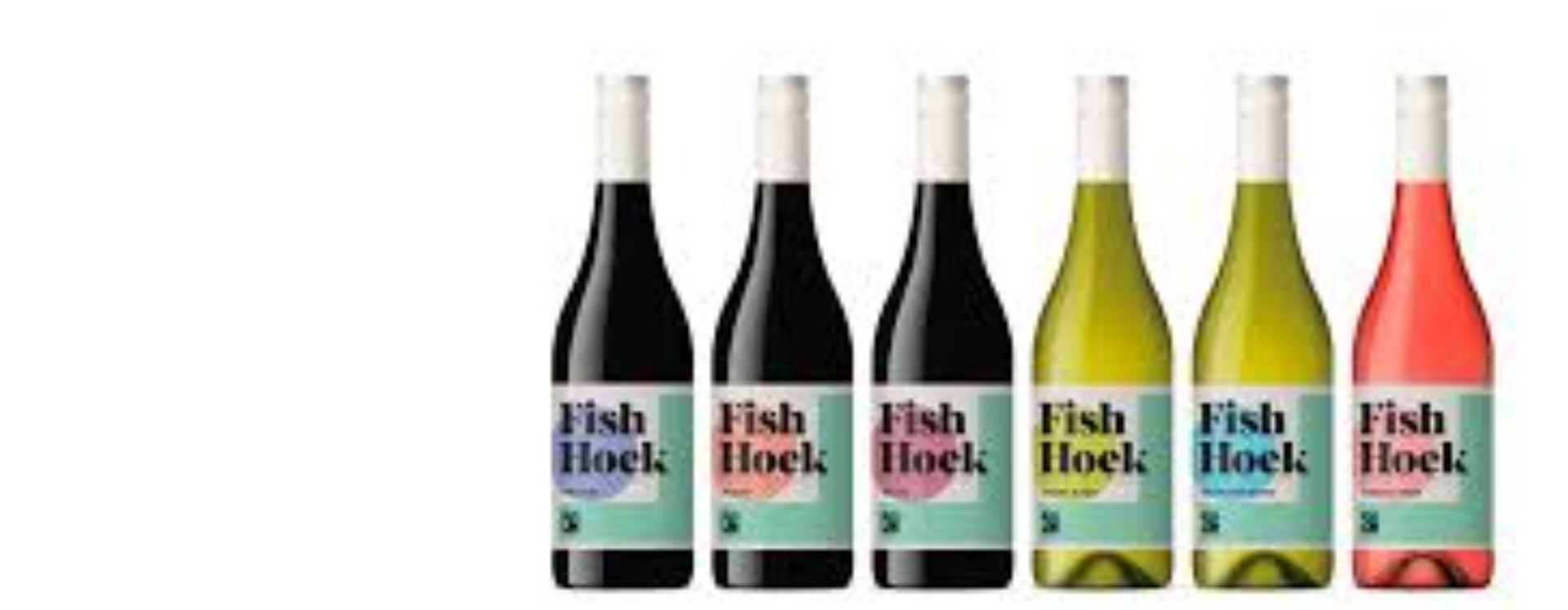
FISH HOEK WINES
At Fish Hoek Wines, we believe in quality and distinctive character. the notion motivates our focus to produce stunning single grape varietals.
Paired with our skilled winemaking, we aim to create wines that are artful in its simplicity.
With six single varietals in our range, you have a multitude of choices including Chenin Blanc, Sauvignon Blanc, Rosé, Shiraz, Merlot & Pinotage.
Our wines are also Fairtrade Certified. A percentage from every bottle of Fish Hoek sold goes directly
into the hands of the farm workers who helped grow and harvest our grapes. It helps fund local schools, female empowerment and community groups in South Africa’s Western Cape.
